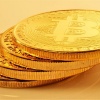
Israel-Hamas Conflict Shakes Global Markets: Emerging Stocks and Crypto Slide, Oil and Metals SurgeIsrael-Hamas Conflict Shakes Global Markets: Emerging Stocks and Crypto Slide, Oil and Metals Surge Global markets took a hit today as tensions between Israel and Hamas escalated into full-blown warfare over the weekend. The conflict has caused ripples across asset classes, sending emerging stocks and cryptocurrencies on a downward trend while boosting the value of oil and precious metals.Financial markets are facing these new challenges amid pre-existing concerns about the Ukraine-Russia confli...
Global markets took a hit today as tensions between Israel and Hamas escalated into full-blown warfare over the weekend. The conflict has caused ripples across asset classes, sending emerging stocks and cryptocurrencies on a downward trend while boosting the value of oil and precious metals.
Financial markets are facing these new challenges amid pre-existing concerns about the Ukraine-Russia conflict, surging inflation rates, and increasing interest rates.
Global Equities Feel the Heat of the Israel-Hamas War
U.S. stock indices, including the S&P 500, Dow Jones, Nasdaq, and Wilshire 5000, saw declines in their numbers earlier today. While the indices closed positively last Friday, the situation turned unfavorable following the Israel-Hamas war.
Bank of Israel responded to the crisis by announcing its plans to sell up to $30 billion in foreign currency to maintain market stability. Additionally, Israeli government bonds dropped, with the 2120 Hundred Year bond declining by 5.3 cents on the dollar, hitting a record low.
Commodities Rally: Oil and Metals See Gains
Oil and precious metals have traditionally acted as safe havens during times of geopolitical unrest. This trend holds true in the current Israel-Hamas conflict. Both U.S. crude oil and Brent saw substantial upticks, and this has broader implications.
The Organization of the Petroleum Exporting Countries (OPEC) recently raised its output projections to 116 million barrels per day by 2045, a hike of 6 million BPD from last year. On Sunday during the opening session of the Middle East and North Africa Climate Week in Riyadh, Saudi Arabia’s energy czar, Prince Abdulaziz bin Salman, mentioned that OPEC is adopting a “precautionary approach.” With the Israel-Hamas war escalating, there are discussions about further scaling back oil output.
Susannah Streeter, Hargreaves Lansdown’s head of money and markets, stated, "The shocking attacks in Israel have sent the price of oil soaring, as investors assess the potential for the conflict to disrupt supply in the Middle East, if other countries are drawn in."
If other nations get involved in the Israel-Hamas war, the ripple effect could impact global oil supply chains, further driving up prices and adding to inflationary pressures that are already a concern for global economies.
Crypto Market Cap Shrinks Amid Global Market Turmoil
While cryptocurrencies have often been touted as "digital gold," their performance during the Israel-Hamas conflict suggests otherwise.
The total market cap of cryptocurrencies experienced a decrease of 2.04% against the U.S. dollar. Major cryptocurrencies like Bitcoin and Ethereum followed the downtrend, shrinking by 1.7% and 2.46% respectively against the U.S. dollar during early trading hours.
Geopolitical strategist Tina Fordham told Reuters, "Typically the most sensitive asset classes to geopolitical risk are emerging markets, commodities, and currencies – and, true to form, we've seen hits in all of those areas."
Currencies also felt the impact of the conflict. Israel's national currency, the shekel, weakened sharply against the U.S. dollar, which rose by 2.96% to 3.952 shekels. Gold, often considered a safe haven, saw demand rise by around 1.39% to $1,858 an ounce. Silver edged up by 1.23% at 3:00 p.m. (ET).
The Israel-Hamas conflict has brought into sharp focus the sensitivity of global financial markets to geopolitical events. While the immediate financial implications are evident across asset classes, the long-term effects are unknown.




